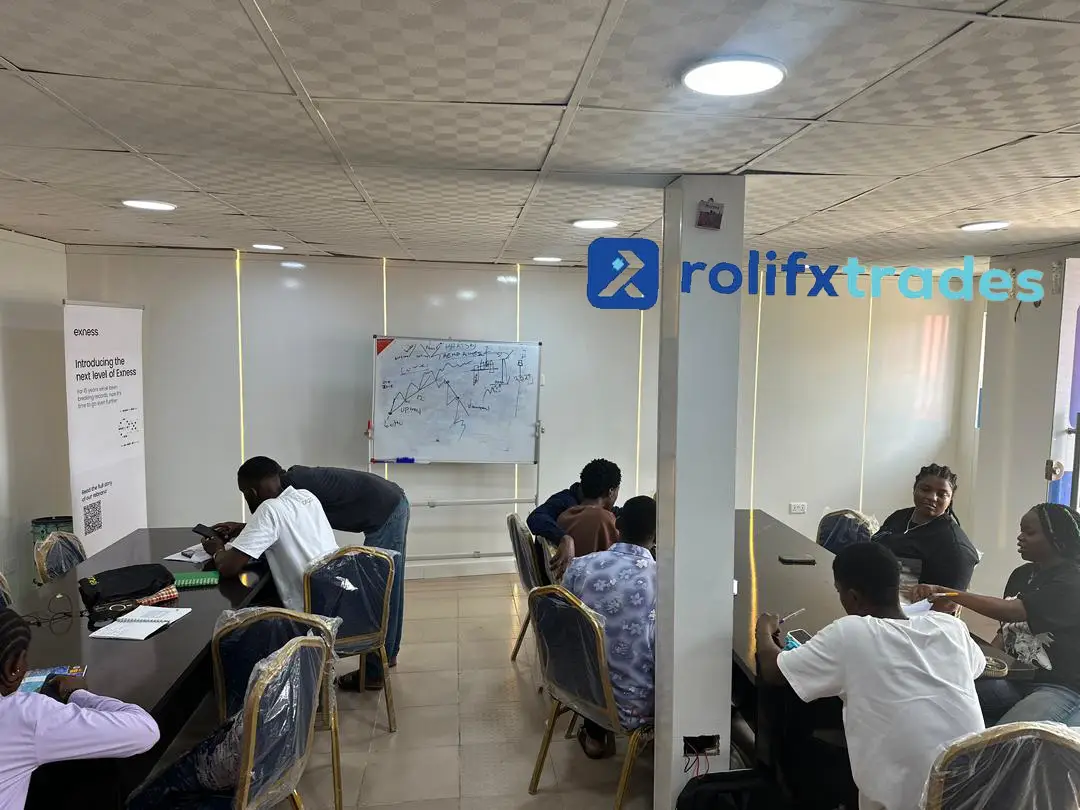What if your biggest obstacle in Forex isn’t the market, but you? Just like fingerprints, no two traders are exactly alike, but most fall into four core categories. The secret to consistent profits in forex trading might not lie in complex indicators or insider tips but in understanding the types of forex traders and where you belong. Many traders fail because they adopt strategies that clash with their goals, schedules, or emotional limits. The market doesn’t care about your preferences, but you should.
Typically, the forex market is a battlefield of strategies, time zones, and risk appetites. Are you the type to make split-second decisions, or do you prefer analyzing charts for weeks before placing a trade? Your approach will determine your wins and losses. It will also determine how you navigate trends, news events, and emotional highs and lows. Knowing where you fit can help you refine your methods and avoid costly mistakes.
In this post, we’ll break down the four types of forex traders, from the adrenaline-chasing scalpers to the patient position traders. By the end, you’ll be able to see your strengths and blind spots and recognize your own trading style. This will provide the clarity to trade smarter, not harder. If you’re ready to find out which trader you are, then read carefully!
Also Read: Top 10 Books On Trading Forex Trading for Beginners
How to Choose the Right Forex Trading Strategy?
Selecting an appropriate forex trading strategy requires evaluating your trading style, risk tolerance, and time availability. You have to determine whether you prefer short-term approaches like scalping or day trading. These types of trading demand constant market monitoring, or longer-term methods such as swing or position trading, which are more flexible with time commitments.
Furthermore, you have to understand your comfort with risk, as strategies vary in potential gains and associated risks. Likewise, you should select a strategy that fits with your lifestyle and ensure you can dedicate quality time to trade. Additionally, before committing to real capital, it’s advisable to backtest your chosen strategy using historical data and practice on demo accounts to assess its effectiveness.
What Are the 4 Types of Forex Traders | Which One Are You?

Below are the various types of Forex traders and their unique traits and patterns of trading.
#1. Scalpers
Scalpers are one of the most intense types of forex traders, operating on ultra-short timeframes (seconds to minutes) to exploit microscopic price movements. Their strategy hinges on high-frequency trading, often executing 50–100+ trades daily. Furthermore, scalpers rely heavily on technical indicators like tick charts, moving averages, and stochastic oscillators to identify fleeting opportunities. Liquidity and low spreads are critical, so they often trade major currency pairs like EUR/USD and GBP/USD during peak market hours.
Similarly, for scalpers to thrive, they require advanced tools: a direct-access trading platform with minimal latency, real-time news feeds, and automated scripts for rapid order execution. This style demands unshakable focus, as a single lapse can erase hours of gains. Here, risk management is paramount. Thus, scalpers will have to use tight stop-loss orders from 1–5 pips and limit leverage to avoid margin calls. While profits per trade are small like 5–10 pips, compounding gains over hundreds of trades can yield significant returns. Meanwhile, scalping isn’t for everyone. It suits individuals with quick reflexes, discipline, and the ability to handle stress.
#2. Day Traders
If you’re a trader who enjoys structured routines and analytical thinking and can handle moderate stress, then day trading may be for you. Day traders represent a balanced category among the types of forex traders, holding positions for hours but closing all trades before the daily market closes. Unlike scalpers, they target larger intraday price swings of 10–50 pips. This type of trader is driven by technical patterns, news releases, or market sentiment shifts. Likewise, their popular strategies include breakout trading and range trading, which is buying low/selling high within a channel.
Furthermore, day traders combine technical and fundamental analysis. They monitor economic calendars for events like Central Bank announcements or employment reports, which can trigger volatility. Tools like 1-hour or 4-hour candlestick charts, Fibonacci retracements, and volume profiles help identify entry/exit points. Typically, this style offers more breathing room than scalping but still demands 4–8 hours of daily screen time. However, day trading requires discipline to avoid overtrading and the flexibility to adapt if trends reverse unexpectedly.
#3. Swing Traders
Swing traders are patient types of forex traders who hold positions for days to weeks, aiming to profit from market swings. This category of traders are driven by technical or macroeconomic factors. Hence, they analyze higher timeframes like daily or weekly charts to spot trends, using tools like trendlines, MACD, and RSI to confirm momentum. Swing traders often target 50–200 pip moves, balancing frequency and reward.
Similarly, swing traders combine technical analysis with fundamental insights. For example, a swing trader might enter a EUR/JPY trade ahead of Eurozone inflation data, anticipating a trend reversal. Unlike day traders, they hold positions overnight, exposing them to gap risks.
Typically, swing trading is for those with limited screen time, such as working professionals. It requires patience to ride out minor fluctuations and discipline to stick to predefined plans. Therefore, if you prefer fewer trades with higher profitability per trade and can tolerate overnight risk, you can consider swing trading.
#4. Position Traders
If you’re analytical, not short-term driven, and confident in forecasting global trends, this strategy may suit you. Position traders are typically referred to as the Big-Picture Investors. This type of forex trader holdss trades for months to years based on long-term macroeconomic trends. Likewise, they focus on basics like interest rate cycles, geopolitical shifts, or trade policies. For example, a position trader might buy USD/CAD anticipating a multi-year rise in U.S. oil exports.
Furthermore, position trading demands deep research into global economics and a high-risk tolerance, as drawdowns can exceed 10–20% before trends materialize. Hence, technical analysis plays a minor role, often limited to identifying broad support/resistance zones on monthly charts. This is one of the types of forex traders that often use smaller leverage and allocate only 5–10% of their portfolio to a single trade. They utilize tools like CFTC to gauge market sentiment and interest rate differentials for decision-making.
Frequently Asked Questions About the Types of Forex Traders
Is forex trading profitable?
Forex trading presents potential for profitability, but it comes with risk and requires a thorough understanding of the market. Those who succeed in forex trading have a well-developed trading strategy, disciplined risk management, and continuous learning ability.
How many types of forex traders are there?
There are four main types of forex traders: day traders, position traders, scalpers, and swing traders.
What type of trading is best for forex?
There is no straightforward answer to this because what works for someone may not work for another person. Typically, the rule of thumb is to embark on a self-assessment and choose a type of trading that blends with your personality, financial goals, and lifestyle.
What are the four sessions in forex?
The major forex market sessions are: Sydney, Tokyo, London, and New York.
What is the most profitable forex trading strategy?
Scalping is the most profitable forex strategy. This strategy offers various trading opportunities, an improved success rate, and poses less systematic risk. However, success depends on your consistency and sensitivity to slippage.
Conclusion
Finally, understanding the types of forex traders is essential. However, determining which category best suits your personality, lifestyle, and financial goals requires honest self-assessment. Each of the four types of forex traders are for different personalities, goals, and risk appetites. So, you should assess your time availability, emotional resilience, and analytical strengths to choose your path.
Furthermore, many successful traders begin with one style and evolve their strategy as they gain experience and insight into their own trading psychology. Remember, there’s no one-size-fits-all approach, as the currency market is constantly evolving. Therefore, you should be flexible while staying true to your fundamental trading principles.
References
investopedia.com – Types of traders
tradersunion.com – which forex trading strategy is best for me?




